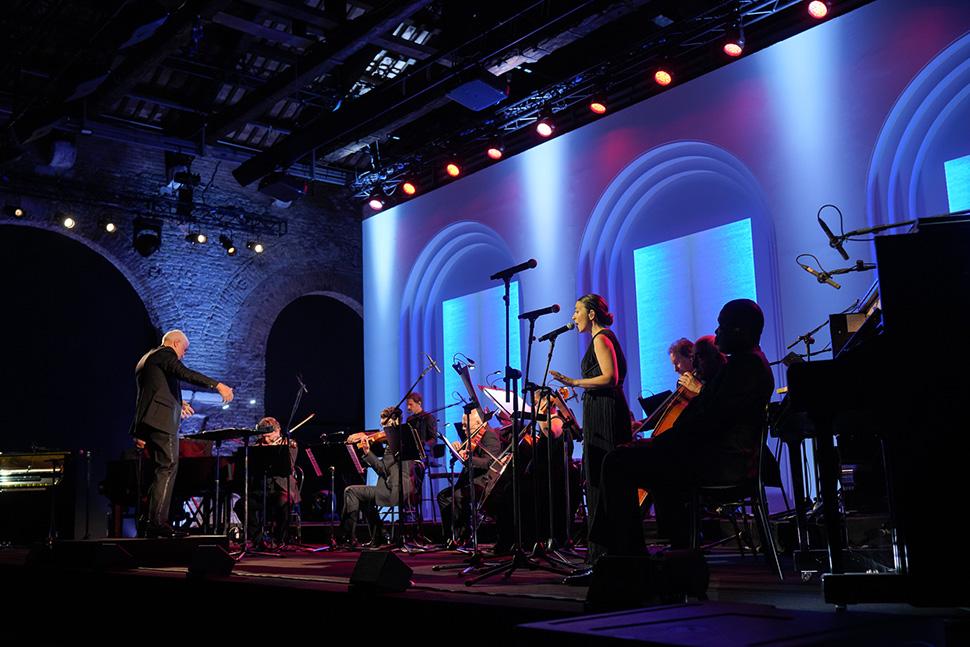| Year / Length: | 2022, 50’ World premiere |
|---|---|
| Text by: | Paolo Buonvino, in collaboration with Marina Zucchelli, Badara Seck, Faisal Taher, based on literary and documentary fragments about the concept of breath in Sicily |
| Piano and live electronics: | Paolo Buonvino |
| Vocalists: | Rossella Ruini, Badara Seck, Faisal Taher |
| Wind instruments and live electronics: | Pasquale Laino |
| Keyboard and live electronics: | Seby Burgio |
| PMCE – Parco della Musica Contemporanea Ensemble: | flutes Manuel Zurria / ethnic flutes and clarinets Paolo Ravaglia / percussion Flavio Tanzi / violins Francesco Peverini, Filippo Fattorini / viola Luca Sanzò / cello Anna Armatys / doublebass Massimo Ceccarelli |
| Sound design: | Tommaso Cancellieri |
| Audio project: | Fabio Venturi |
| Conductor: | Tonino Battista |
| Disklavier: | 2 vertical Yamaha Disklavier D U1 EN, 1 Yamaha C7X EN Disklavier |
| Sound design and live electronics: | Thierry Coduys, Paolo Buonvino |
| Musical assistant: | Silvia Barbera |
| Artistic installation: | Irma Blank |
| Costumes: | Maria Grazia Chiuri for DIOR |
| Direction: | Antonello Pocetti |
| Light project: | Marco Lucarelli |
| Art project curator: | Maria Alicata |
| Production of the Irma Blank art installation: | Bureau Betak for DIOR |
| Video animation: | Madre |
| Commissioned and produced by: | La Biennale di Venezia |
| Thanks to: | House of DIOR for the production of the costumes / P420, Bologna for Irma Blank’s artwork |
Paolo Buonvino - Çiatu

Description
The etymology of the Sicilian dialect word “çiatu” derives from the Latin “flatus”, “breath”, but in popular usage the same term takes the form of an expression of affection, çiatu miu, “my soul”, “my life”: almost a whisper of love. In this twofold sense the word sums up the profound feelings of Sicilian composer Paolo Buonvino in the work to which it gives the title. The author’s intention is to stimulate the listener to focus on his or her breathing, a practice which, with its meditative and calming effect, can help to overcome our paralysis, free us from excess and from the ambient noise that surrounds us, thereby creating the ideal conditions for knowing ourselves in our simplicity, whatever the culture that shaped us. In many philosophies and religions breathing is the act that gives origin to life and, as such, is an essential means to return to the centre of one’s being and to attain a sense of elevation and inner peace. It is not by chance that in many cultures the same word means both a breath and the soul.